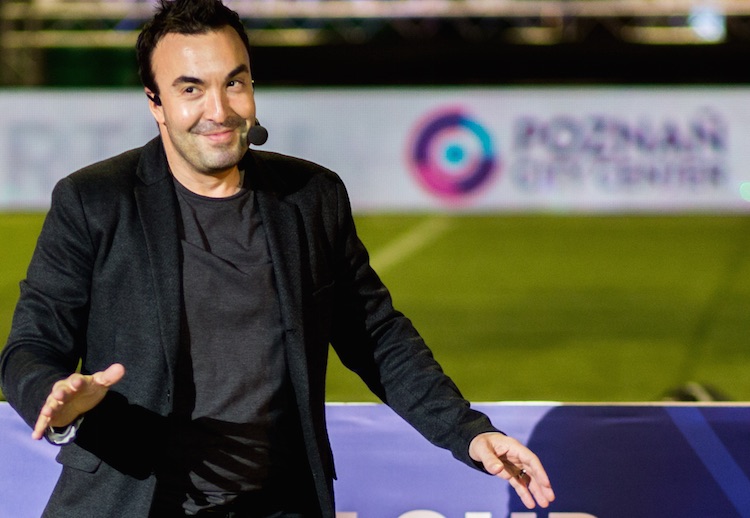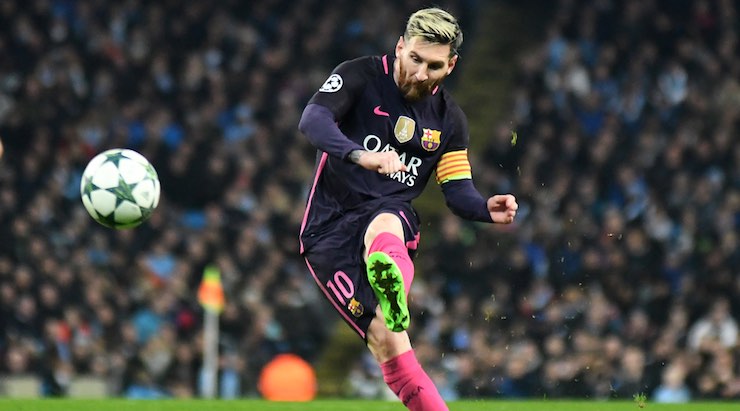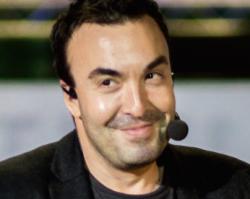In Soccer: Preventing a Comeback
SoccerToday’s columnist Dan Abrahams shares his insights and advice for success on the soccer field for players of all ages. A global sport psychologist and author specializing in soccer, Abrahams is based in England and works with professional soccer players in the English Premier League (EPL). Abrahams has helped hundreds of soccer players – many of them who play in the English Premier League (EPL) and others who play across Europe. A recent example of his work includes helping Yannick Bolasie make an enormous impact on the EPL for Crystal Palace. Abrahams has held contracts with QPR, Fulham, and West Ham among other clubs and works quietly, behind the scenes with many coaches from top clubs across Europe.

In one of my last article for Goal Nation, I wrote about the art of making a comeback. Here is a follow up:.
What stops a soccer comeback from being successful?
When you’re a couple of goals down, what are the keys to clawing your way back into the game?
READ — In Soccer: The Art of the Comeback
We discussed being patient, staying present and being vocal as the crucial factors that can help you and your team mates launch the comeback of the century, just like FC Barcelona did a few weeks ago in the Champions League match against Paris St Germain (PSG).
What if you’re a couple of goals up? How do you hold onto that lead?
What if you’re three or four to the good at half-time? What can you do to prevent the opponent’s comeback??
Losing from a three-nil position has been known. One of the most incredible matches in EPL history contained such a comeback. When Spurs went into the half-time break three goals to the good against Manchester United in the 2001/02 season, one could have been forgiven for thinking that it wasn’t going to be a great day for the team who had won the previous three Premier League titles.
But David Beckham and team mates had something to say – in fact, they had five things to say. It was Beckham himself who grabbed United’s fifth goal leading to five-three scoreline to finish a pulsating fixture.
So how do you stop a team like Manchester United from making that jarring comeback?
What techniques could PSG players have used to prevent Barcelona from scoring six goals?
How do give yourself the best chance to avoid succumbing to the pressure of a team chasing the game?
Any any age, youth or professional, platers need to focus on their team – not their soccer opponent
It might sound incredibly obvious, but your first port of call is to stop focusing so much on the opposition.
Teams who are the most susceptible to a comeback are ones who become overly concerned by what the opposition are doing.
Stop! Focus on you.
Focus on your role and the responsibilities of your role. Give yourself a good talking to. Tell yourself what you’d like to achieve during the remainder of the match and use your self-talk to inform yourself how.
Control what you can control.

“We’re three-nil up but I’d still like to score another. I have to keep doing what I do at my best as a striker – I have to keep moving and keep striving to find space. I’m going to work even harder than during the first half.”
“I’m going to be relentless – defend from the front, non-stop. Keep going, keep working, keep moving. Let’s get another goal”
This is a striker focusing on him or herself. This is a striker that’ doesn’t care about the opposition and what they’re doing. He or she just wants to keep doing the same great things that got them into the lead. Keep doing the same great things!
Keep being relentless!
“We’re three-nil up and I’m going to keep a clean sheet. I have to keep the striker quiet – I have to keep being strong in the challenge. Know where I am at all times – positioning. Stay switched on – on my toes at all times – quality balls from the back.”
This is a defender focusing on him or herself. Very little thought for the opposition, just on what he or she can control. Work rate, attitude, tactical awareness.
Keep doing the same great things! Keep being relentless!
In Soccer – Always be fearless not fearful
Going two or three ahead can do something weird to your brain. It can switch you into a defensive mindset. It feeds the thought “Don’t lose this” into your mind. It can spread the feeling of fear throughout your body – especially if the opposition pull a goal back.
This is probably to do with the stress response. You now have something to lose. A common source of stress is embarrassment – “If we draw or lose from here we’re going to look stupid”.
So what happens? You play back foot football rather than front foot. You play not to lose rather than to win. You play with fear rather than with freedom.
I want you to continue to play with freedom.
I want you play fearless no matter the score, no matter the state of the match.
It’s the manner in which you played that helped you attain the score-line in the first place.
If fear is creeping through the joints in your body and if you find yourself playing deeper and deeper then stop! Shout stop to yourself!
Get your body language up. Stand tall and start playing head up. Get on your toes. Spend a few minutes getting those fast feet back again.
Work! Work! Work! Be vocal – help others. Look forward. Strive to become looser, freer and more confident. Do things quicker and better. Focus – get back to you, now! If you can take a little risk. Play a ball over the top or take a shot from distance. Magic moments can break the momentum the opposition may hold over you.
In Soccer — at all levels, it’s a Choice
Ultimately remember this. Your attitude when you are winning is a choice. You can choose to play back foot or you can choose to be brave. You can choose to be bold.
Be brave and bold when you’re three-nil up. Imagine if PSG had done this against Barcelona. Would they really have lost the two leg tie? Really? If they truly backed themselves would they have shipped six goals? Maybe one or two or three. But six? No, they lost because they played back foot. They played with fear not freedom. They played not to lose rather than to win.
Easy to do? Of course not! Especially when you’re playing the best club team of the modern era.
But it’s what you have to do and you have to see that as a choice. You have to choose to focus on yourself.
You have to choose to play with freedom. You have to exercise your right to choose your attitude as the game is played out.
You have to choose to fight with bravery and with boldness to the bitter end. When you do this you’ll give yourself a great chance to hold that big lead.
Related Articles: Soccer Lovers’ Best Ever Soccer Book Guide: Soccer Tough: Simple Football Psychology Techniques to Improve Your Game by Dan Abrahams
Dan Abrahams is a global sport psychologist specializing in soccer. He is based in England and has some of the leading turn-around stories and case studies in English Premier League history.

Abrahams is sought after by players, coaches and managers across Europe and his 2 soccer psychology books are international bestsellers. He is formerly a professional golfer, is Lead Psychologist for England Golf and he holds a degree in psychology and masters degree in sport psychology.

Discover Dan Abrahams’ Parent Series – Building on his popular Player Series, the Parent Series of videos gives parents practical ideas on how to best support their child in their soccer at every stage of their development.





